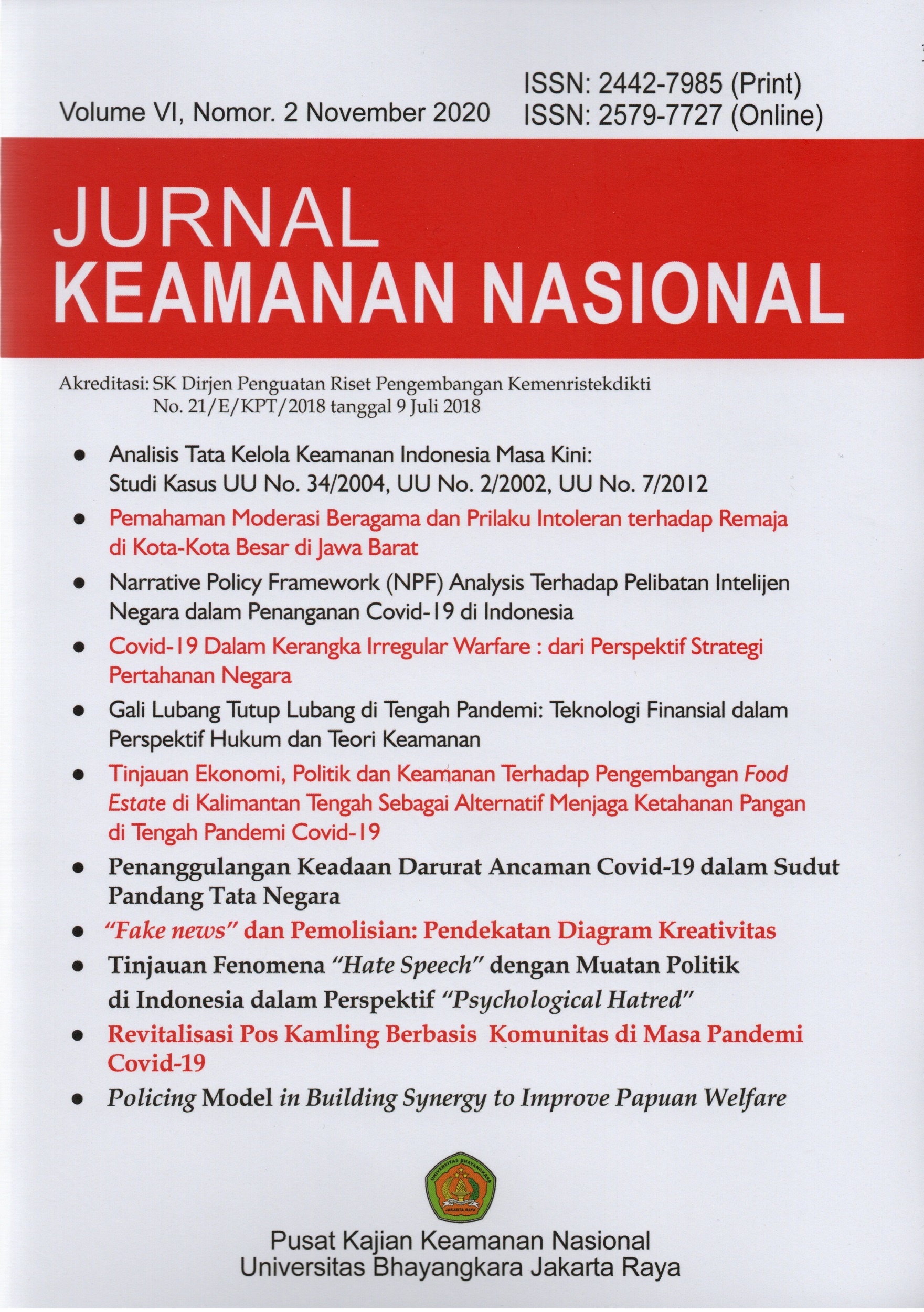Penanggulangan Keadaan Darurat Ancaman Covid-19 dalam Sudut Pandang Tata Negara
Keywords:
Emergency state; Covid-19, government, policyAbstract
Since being declared an international pandemic by WHO, the plague of the COVID-19 disease has spread to all sectors of good community life, public health to the national economy, until finally, the President establishes national status in a state of public health emergency. The purpose of writing is to understand the concept of an emergency, policies that can be taken by the Government during an emergency, and provide a recommendation for the emergency situation. The research method is normative by using the statutory approach and conceptual approach to analyze the problem qualitatively. Research results show that, when the state of an emergency has been determined by the President, then any policy may be carried out by the state to cope with the emergency. For example, raising BPJS fees, delaying payment of PNS salaries, and so on. Except, the policy that cannot be carried out by the state during an emergency situation is to reduce or deviate human rights guaranteed in Article 28I of the 1945 Constitution or
often referred to as “non derogable rights”. Therefore, the author recommends that the Government implement a “new normal life” in order to maintain a stable balance between public health and the national economy.
Downloads

Downloads
Published
Issue
Section
License
Please read and understand the copyright terms for submissions to this journal.
Copyright Notice
The Jurnal Keamanan Nasional is under the Creative Commons Attribution 4.0 International (CC-BY 4.0) License, according to which:
1) Authors retain copyright and grant the journal the right to first publication, with the work simultaneously licensed under the Creative Commons Attribution (CC-BY 4.0) that allows the sharing of articles published with the acknowledgement of authorship and the initial publication in this journal.
2) The authors are authorized to make additional contracts separately for distribution of the version of the work published in this journal (for example, publication in an institutional repository or as a chapter of the book), as long as there is recognition of authorship and initial publication in this journal.
3) Authors are authorized and encouraged to publish and distribute their work online (for example, in institutional repositories or on their personal pages) at any time before or during the editorial process, as it increases the impact and reference of the published work.












